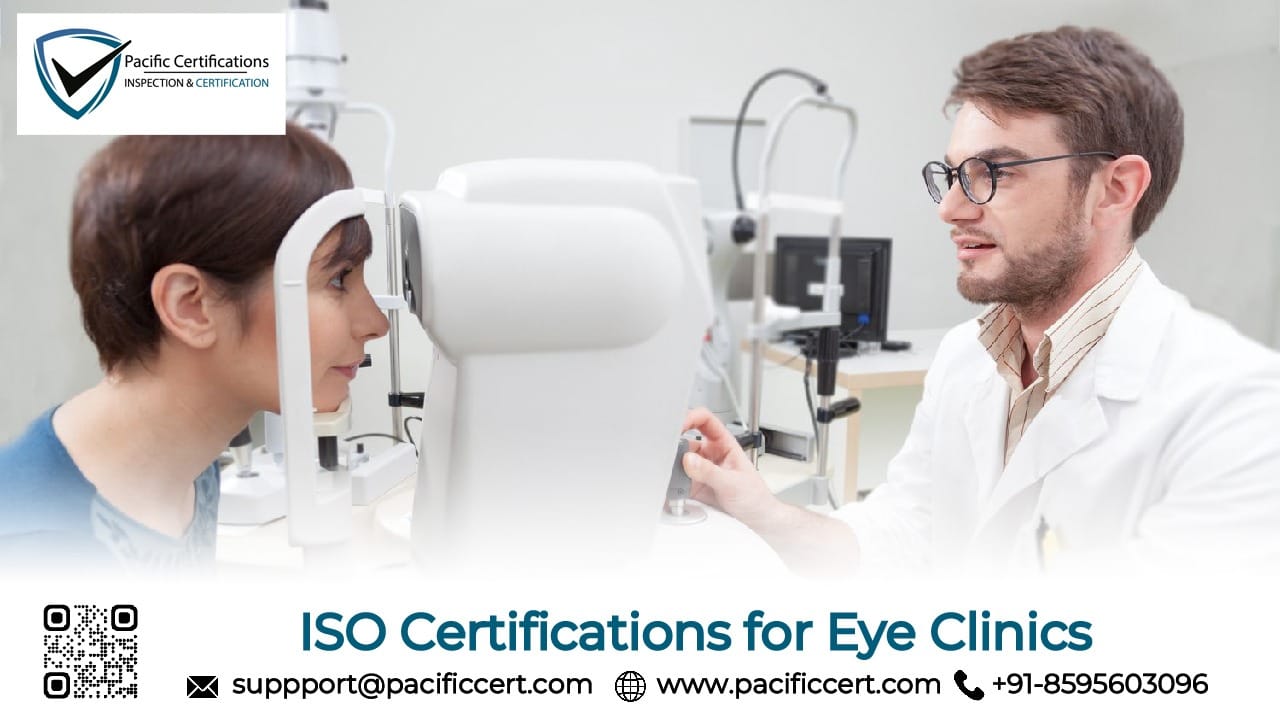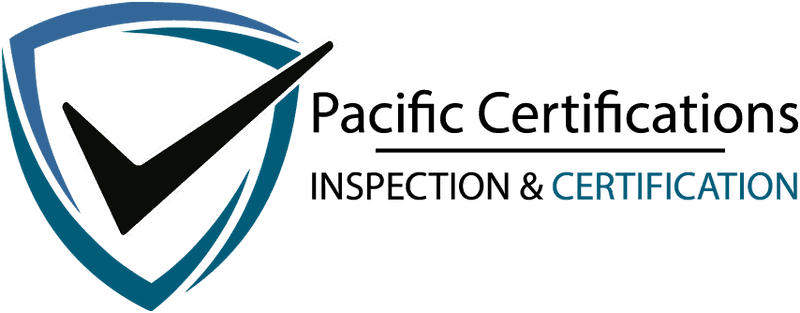ISO Certifications for Eye Clinics, Requirements and Benefits

Introduction
Eye clinics handle highly sensitive medical procedures, diagnostic processes, surgical operations, sterilization activities, optical devices, patient data, and ongoing outpatient care. This environment demands a high level of accuracy, risk management, hygiene control, and data protection.
ISO certifications offer a defined, structured, and internationally recognized framework that supports these needs. For eye hospitals, ophthalmology centers, vision-care facilities, LASIK/SMILE surgery clinics, and optical diagnostics centers, ISO standards help maintain clinical performance, reduce operational errors and improve patient satisfaction. They also enhance credibility, especially when partnering with insurance providers, government health programs, and international healthcare networks.
An eye clinic’s true strength lies not only in clinical excellence, but in its ability to create a systematic environment where every procedure and every patient interaction follows a consistent, quality-driven standard
Reach out to our certification experts at [email protected] for all your ISO certification queries.
Quick Summary
Eye clinics across the world are adopting internationally recognized standards to strengthen patient safety, ensure clinical accuracy, improve hygiene protocols, and build trust with insurers and healthcare regulators. ISO certifications provide a structured and globally accepted framework for managing risks, protecting patient information, improving quality of care, and ensuring continual clinical improvement.
Applicable ISO Standards for Eye Clinics
Several ISO standards are relevant to eye clinics, ensuring compliance with healthcare quality and efficiency requirements. The most commonly applied standards include:
ISO 9001:2015 – Quality Management System (QMS): ISO 9001:2015 is the most widely recognized standard for quality management. It provides a systematic approach to improving patient care and operational efficiency.
ISO 13485:2016 – Medical Devices Quality Management System: ISO 13485:2016 is crucial for eye clinics using advanced ophthalmic equipment, such as lasers, diagnostic tools, and surgical instruments. This standard ensures that medical devices are safe, reliable, and meet regulatory compliance.
ISO 15189:2022 – Medical Laboratories Requirements: Many eye clinics operate in-house laboratories for diagnostic testing. ISO 15189 ensures that medical laboratories maintain high-quality standards.
ISO 45001:2018 – Occupational Health & Safety (OH&S) Management: Eye clinics must protect both their patients and staff. ISO 45001 ensures a safe working environment by minimizing health risks, preventing workplace injuries, and ensuring compliance with safety
regulations.
ISO 14001:2015 – Environmental Management System (EMS): Sustainability is an emerging focus in the healthcare sector. ISO 14001 helps eye clinics reduce their environmental impact.
ISO 27001:2022 – Information Security Management System (ISMS): With increasing cyber threats and data breaches in healthcare, protecting patient records is crucial.
Click here to find out more applicable standards to your industry
Book an audit with Pacific Certifications by emailing [email protected] and assess your eye clinic’s compliance with ISO standards.
What are the requirements of ISO Certifications for Eye Clinics?
To achieve ISO certification, eye clinics must meet specific requirements based on the standard they wish to implement. Here’s a brief overview of the key requirements for each:
Implement structured clinical and administrative procedures aligned with ISO quality, safety, or data-security standards
Maintain documented operating procedures for diagnosis, surgery, sterilization, lab operations, and patient care
Ensure calibration and maintenance of ophthalmic medical devices
Conduct periodic risk assessments for clinical, operational, and data-security processes
Train medical and administrative staff on quality, safety, and emergency procedures
Implement infection control and hygiene protocols aligned with global healthcare standards
Secure patient records, diagnostic images, and digital systems using information-security controls
Establish and maintain internal audits, corrective actions, and management reviews
Maintain traceability of medical supplies, implants, lenses, and pharmaceutical stock
Ensure compliance with national healthcare regulations and licensing requirements
Tip: Eye clinics benefit significantly from digital documentation and EMR-based workflows. Consolidating clinical SOPs, surgical protocols, device maintenance logs, patient consent records, and sterilization checklists into a centralized system improves audit readiness and ensures smoother implementation of ISO standards across the organization.
Learn more about our ISO certification services by reaching out at [email protected] or calling +91-8595603096 today!
What are the benefits of ISO Certifications for Eye Clinics?
Achieving ISO certification offers multiple advantages for eye clinics, including:
Strengthens clinical safety by enforcing controlled procedures and reducing risks.
Improves diagnostic and surgical precision through standardized protocols.
Enhances credibility with healthcare regulators, insurers, and compliance authorities.
Builds confidence by demonstrating consistent and high-quality medical care.
Minimizes clinical mistakes through structured workflows and documented practices.
Ensures ophthalmic devices perform safely through planned calibration and maintenance.
Protects EMR systems, diagnostic images, and patient records with verified controls.
Strengthens sterilization, infection control, and clinical cleanliness.
Streamlines clinic operations and reduces delays in patient care.
Improves continuity of eye-care services during crises or system failures.
Enhances clinical and support staff skills through structured training requirements.
The global eye-care industry is experiencing sustained growth driven by rising demand for cataract surgery, refractive procedures, retinal diagnostics, and preventive eye-care services. Recent estimates show the global eye-care market reaching USD 149.1 billion by 2035 at an expected 6.4–6.5% CAGR.
The wider ophthalmology market, which includes diagnostics, surgeries, and services potentially rising to USD 144.04 billion by 2034 with a 6.4% growth rate. Ophthalmic devices, highly relevant for eye clinics represent are expected to grow to USD 43.77 billion by 2032 at about 4.8% CAGR.
Globally, an estimated 2.2 billion people live with vision impairment, and 1 billion cases remain preventable or unaddressed, creating strong demand for structured, high-quality, and standardized clinical care making ISO-certified eye clinics well-positioned for this expanding market
How Pacific Certifications Can Help
Pacific Certifications, accredited by ABIS, provides independent auditing and certification services to eye clinics seeking compliance with ISO standards. The certification process is conducted impartially by aligning clinic operations with globally recognized requirements.
Pacific Certifications supports eye-care organizations in demonstrating consistent quality, patient safety, data protection, and regulatory conformity.
We can:
Conduct impartial audits based on ISO standards relevant to eye clinics
Review documentation, clinical processes, device controls, and data-security practices
Perform Stage 1 and Stage 2 audits, along with annual surveillance assessments
Issue accredited ISO certificates under ABIS upon successful compliance
Ensure the certification process remains transparent, independent, and globally recognized
If you need support with ISO certification for your Eye Clinics business, contact us at [email protected] or +91-8595603096.
Written by: Sony
Read More at: Blogs by Pacific Certifications

